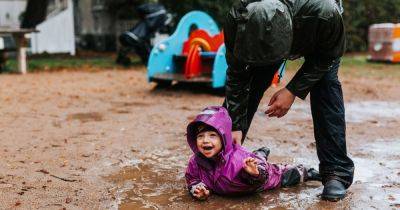Are You Raising A Member Of The 'Anxious Generation'? Here's How To Protect Your Kid's Happiness.
A new bestselling book has labeled teens today “the Anxious Generation.” If your child is a teen (or will be soon), you’re probably wondering if there’s anything you can do to protect their mental health.
According to the Centers for Disease Control’s Youth Risk Behavior Survey, which analyzed data collected from 2011 to 2021, the number of young people who had experienced “persistent feelings of sadness or hopelessness” rose steadily over those those years, reaching 42% in 2021. Rates were even higher for female students and those who identified as lesbian, gay, bisexual or queer (the survey did not ask students if they were trans). The number of adolescents who thought about suicide, made a plan for suicide or attempted suicide all rose over that time period, too.
The pandemic certainly took its toll on the mental health of teens (and the rest of us), but some factors predate COVID. Young people are struggling, and adults are trying to figure out why.
Here, experts make the case for what they think is behind the rise in teen’s distress, and recommend what measures parents can take to protect their kids and preserve their happiness.
Limit screen time, especially social media, and maximize interactions in real life.
One hypothesis is that technology is behind the rise in teen’s mental health issues. Today’s teens are digital natives who don’t remember a time before smartphones and social media, and we can all see that there are some big downsides to living online: a lack of authentic connection and the spread of cyberbullying and misinformation.
In “The Anxious Generation,” author Jonathan Haidt makes a compelling case connecting the decline in mental health to technological advances.
Zach Rausch, Haidt’s chief







